Mental health and physical illness
It's natural to feel low, worried or stressed when we're unwell, and someone with a long-term condition is more likely to experience mental health issues.
Caring for our mental health and wellbeing when we have a physical health issue can make a big difference to our overall wellbeing.
Find what can help you look after your mental health when you're ill and where to get more support if it's needed.
How physical illness might affect mental health
Our physical health can affect our mental health – and vice-versa. Age, life experiences and the support we have might also shape how we feel or respond to illness.
However, a long-term physical illness or a life-long or chronic condition, like diabetes, is more likely to lead to:
- stress, worry or anxiety, especially over appointments or test results
- low self-esteem, or feelings around discrimination or stigma
- social isolation or loneliness, possibly due to long stays in hospital or having to stay home more
- anger, frustration, or grief, especially if being ill stops us from socialising or doing things we enjoy
- sleep problems, which might be caused by pain, sickness, or from the side effects of some medicines
- some less common mental illnesses, such as eating disorders, or psychosis
Self-care tips for your mental health when you're physically unwell

1. Talk about how being ill makes you feel
Being ill can leave us feeling isolated, or experiencing difficult feelings like anger, guilt, or grief.
Talking to someone, either someone you trust or on an online community or peer-support group, might help you to explore your feelings.
Online groups include the Mind's Side by Side online community which is available 24 hours a day.
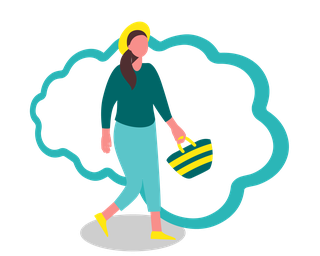
2. Ask for practical help if needed
If your physical or mental health symptoms are affecting your daily life, try to be open about this with family, friends or work colleagues.
If others know what you’re going through, they might suggest ways to help you, like doing your shopping or other household chores, or going with you to your medical appointments.
Do not be afraid to ask for support.
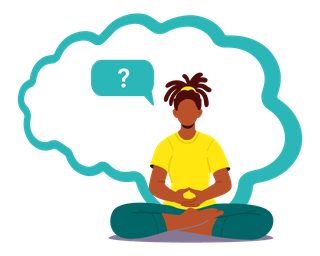
3. Try relaxation or mindfulness
If you're worried about your health, it can feel hard to distract yourself from feelings of anxiety, worry or low mood.
Meditation might help you to relax, shift your focus from negative thoughts and encourage you to stay in the present.
Our guided muscle relaxation exercise may help you feel calmer if you're anxious. If you find it useful, check out how to meditate for beginners.
Video: Progressive muscle relaxation
This audio-only video will guide you through an exercise to help you recognise when you're starting to get tense, and learn to relax your body and mind.

4. Try ways to manage unhelpful thoughts
Dealing with health issues can leave some of us with difficult memories, which might feel overwhelming.
Using simple distraction techniques or engaging in something you enjoy can help to manage difficult memories, images or thoughts.
Try visualising a place that brings a sense of peace and calmness, like a beach or forest, and think about what you might hear, see, smell and touch if you were there.
Distraction can be useful in the short term, but if you feel you need support in the longer term, check out NHS talking therapies, which are available for free in England for anyone aged 18 or over. You can refer yourself without having to see a GP.
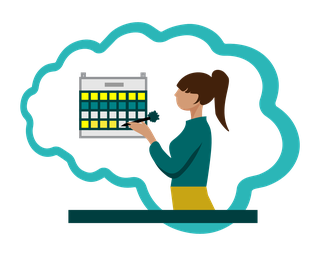
5. Stick to routines or plan things
We can all feel low when we are ill, especially if it stops us from doing things that usually help to lift our mood.
But sticking to routines and doing things we like can boost our mood or make us feel more in control.
If you can, do something you enjoy. It can feel frustrating if your symptoms stop you from doing enjoyable activities, but planning things for the future can also feel like a positive step.
Try to focus on the present or doing what's best for your recovery right now – and recognise and celebrate your achievements, no matter how big or small.
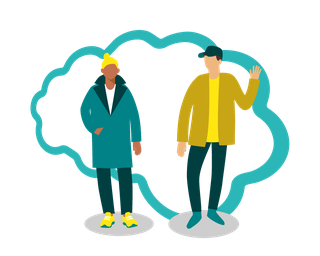
6. Pace yourself and take rest breaks
Spreading out activities in manageable chunks and resting when needed can help us to get things done and avoid negative consequences on our health.
This might help to avoid a "boom-and-bust" cycle of doing too much or burning out.
Only do what feels right for you, and talk to a healthcare professional if you are not sure.
If you are still recovering from COVID-19 (long COVID), find out about support available from the NHS, including the NHS COVID Recovery service.
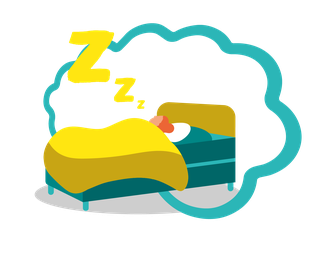
7. Get good sleep
Good sleep is important for physical health. If you are having problems sleeping, there are plenty of things you can try.
Try simple things, such as going to bed and getting up at the same time, as these are good sleep habits that often help with sleep problems.
Check out our "beditation" video, to help clear your mind and prepare your body for sleep, in how to fall asleep faster and sleep better.
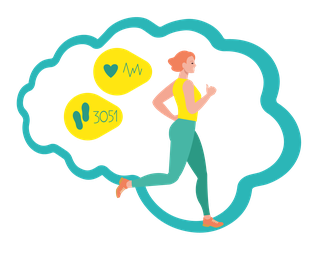
8. Stick to a healthy lifestyle
A healthy lifestyle can help our physical and mental health and wellbeing.
Aim to have a healthy diet – including stopping or limiting alcohol, cigarettes and any other substances that are harmful or stimulants (make us more alert). Cutting down on stimulants can help us to feel calmer.
Our Better Health website has lots of advice and support on healthy eating, drinking less and quitting smoking.
If you can, do some exercise to release natural feel-good hormones (endorphins).
Find out how to be active for your mental health, or go to the We Are Undefeatable website to get inspiration from people who have a health condition and found ways to keep moving.
Get advice and support from a healthcare professional
If you're not sure that making changes will be good for you, or you are experiencing any problems, check with a healthcare professional. It's good to make sure you are doing the right thing for you.
Perhaps keep a note of any changes in your health, which might be useful when you're talking to a healthcare professional.


